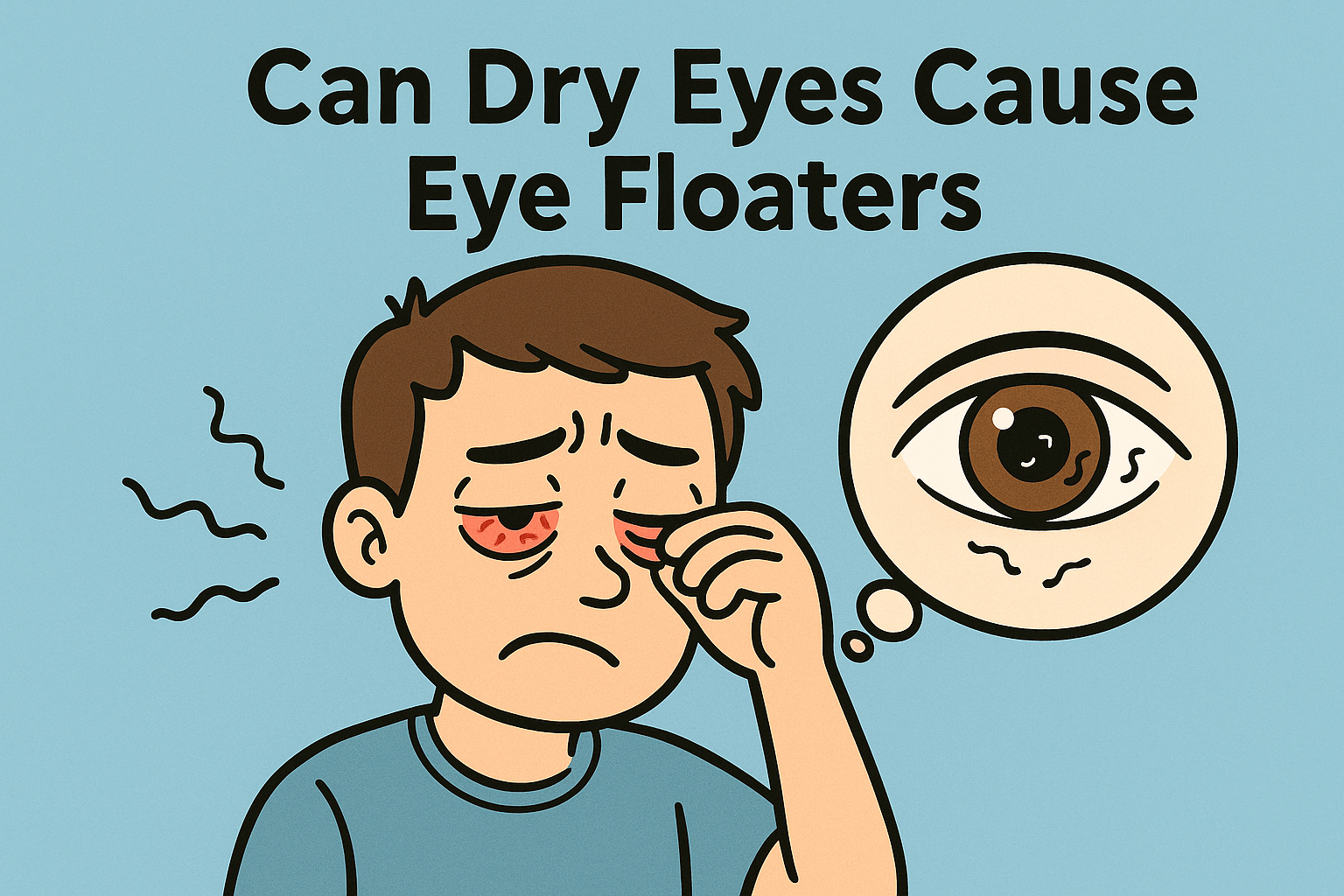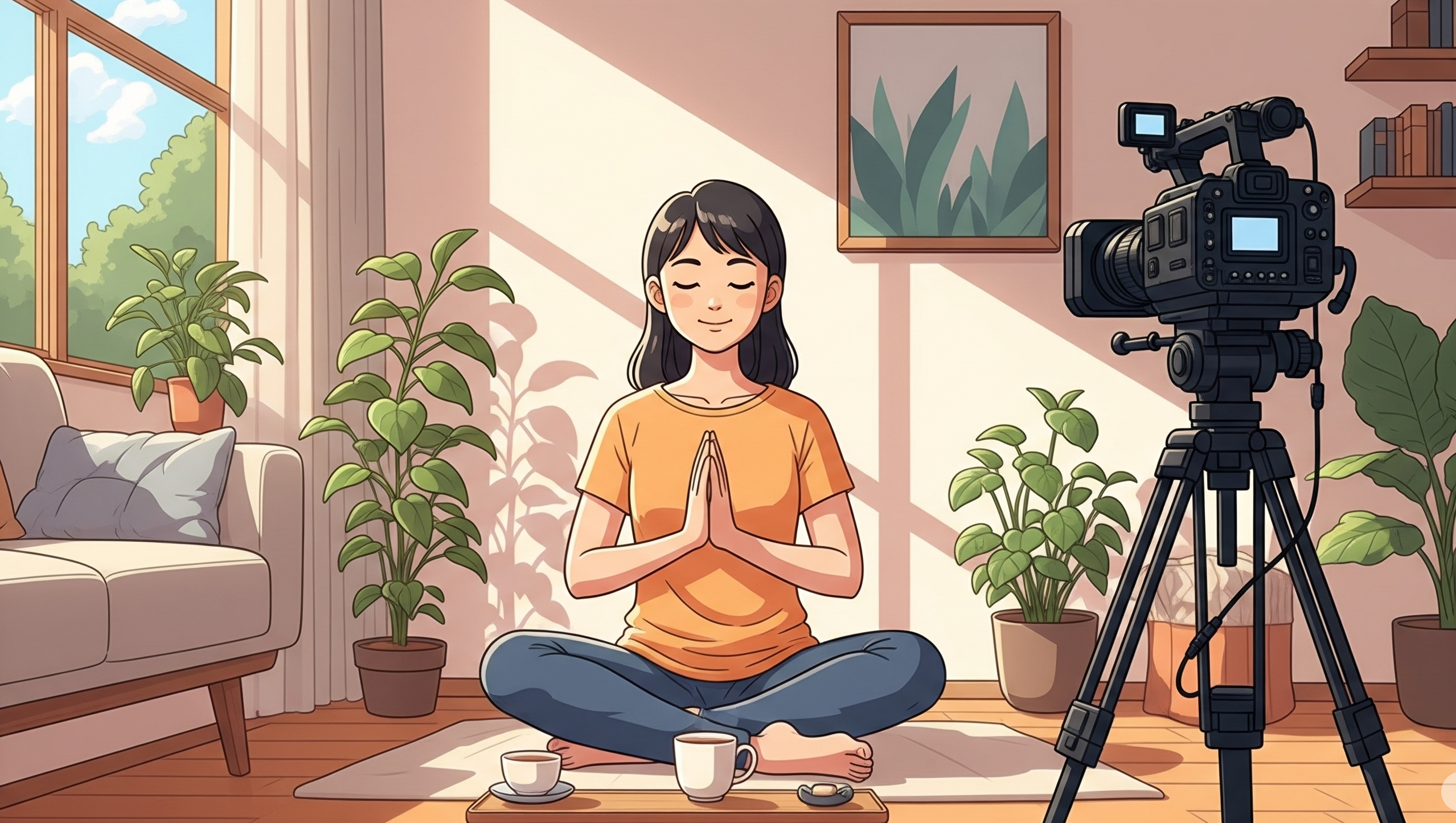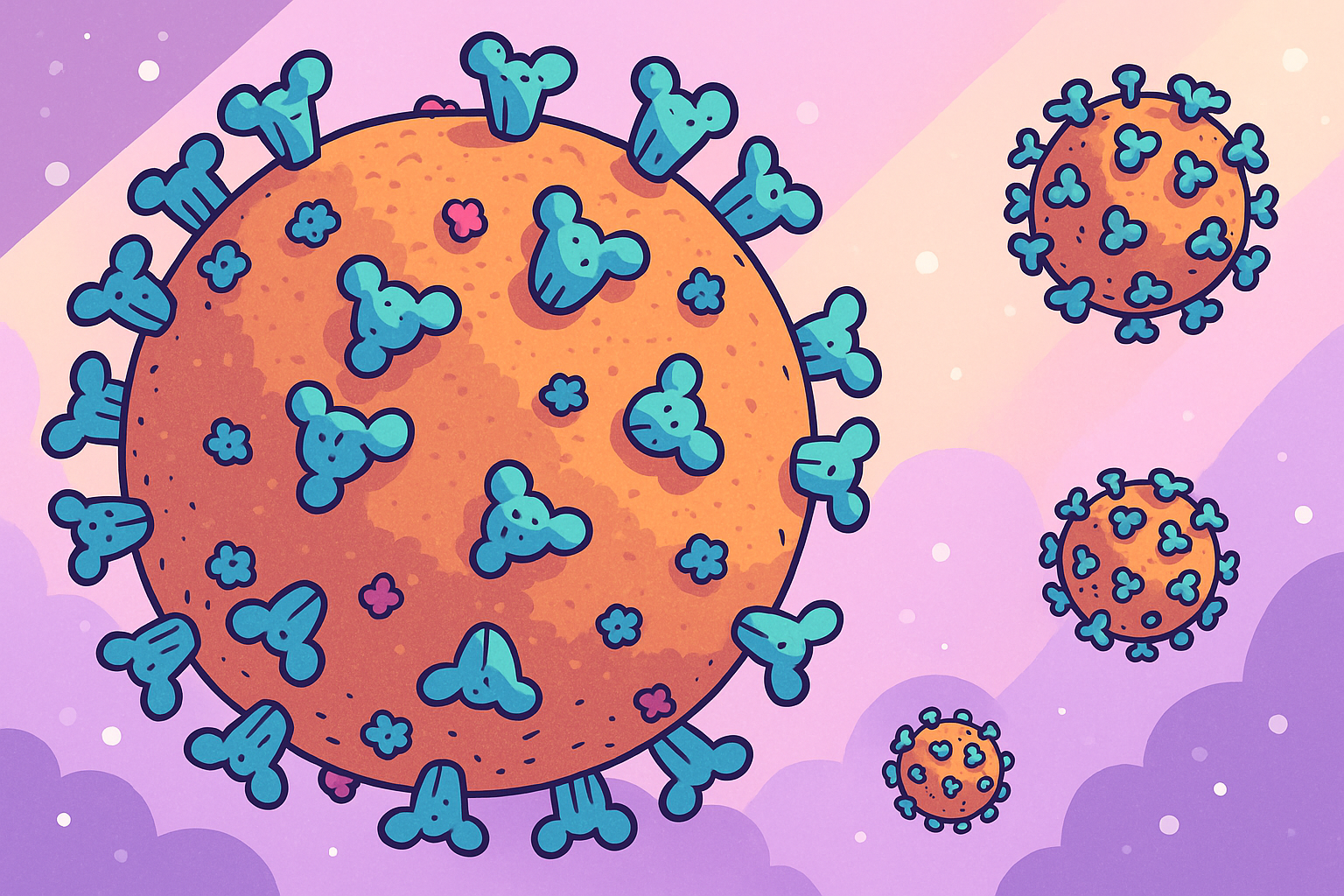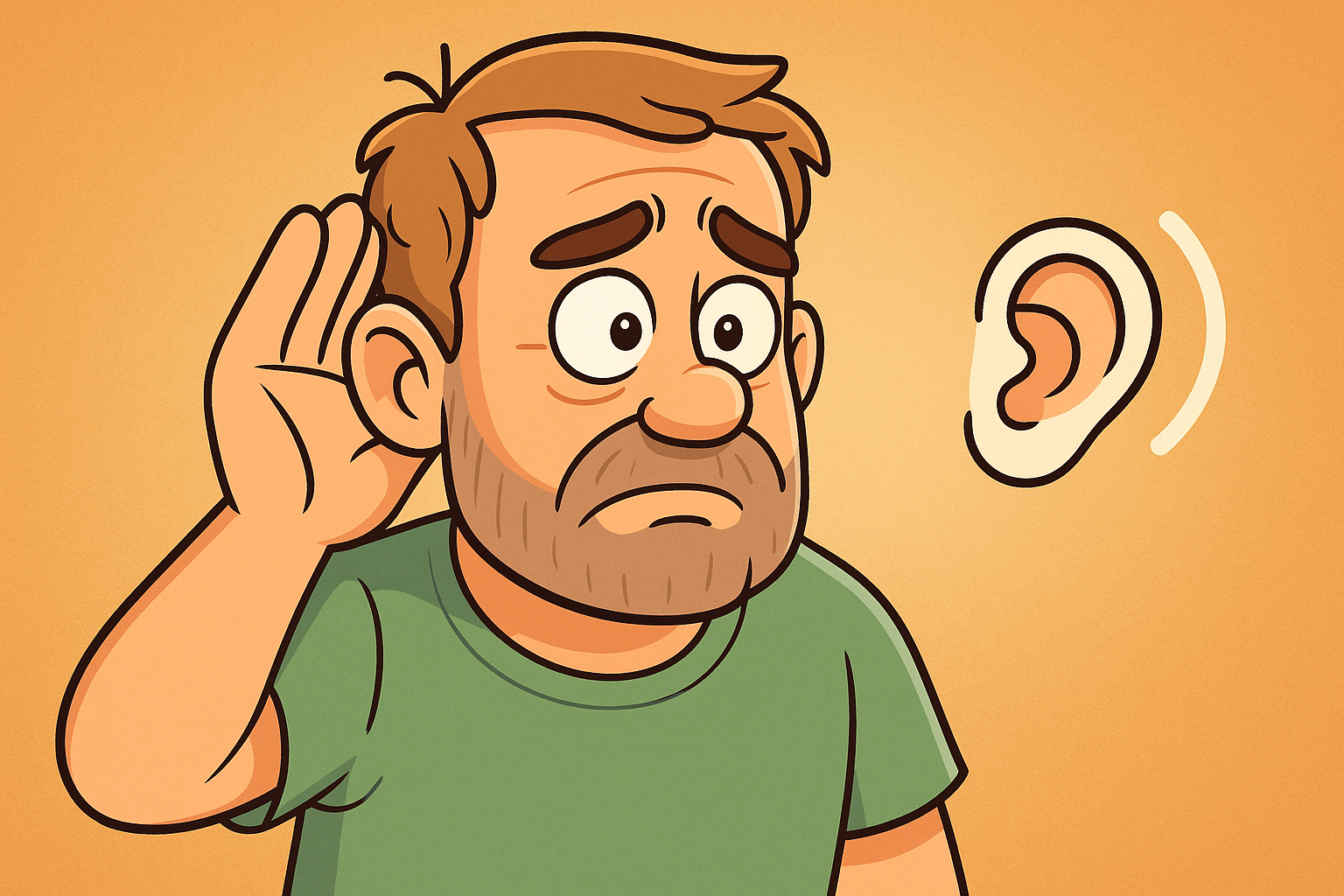Ever found yourself blinking through blurry vision and suddenly noticing squiggly shapes floating across your sightline? If you suffer from dry eyes, you might wonder if the two are connected.
This question is surprisingly common: Can dry eyes cause eye floaters? Let’s break down the science, the symptoms, and what it really means when you experience both issues together. Spoiler: the connection is real, but not in the way you might think.
What Are Eye Floaters?
Eye floaters are tiny clumps of gel or cells inside the vitreous, the clear jelly-like substance filling your eye. As we age, the vitreous can shrink and pull away from the retina, forming floaters.
Floaters often appear as:
- Cobwebs or threads
- Spots or squiggly lines
- Moving shapes that drift across your field of vision
While usually harmless, a sudden increase in floaters may be a sign of a retinal tear or detachment, which is a medical emergency.
Can Dry Eyes Cause Eye Floaters?
No, dry eyes do not directly cause eye floaters. They are two separate conditions that affect different parts of the eye. Floaters occur in the vitreous humor, the gel-like substance inside your eye, while dry eyes affect the tear film and corneal surface.
However, dry eyes can make you more aware of floaters. When your eyes feel irritated or blurry, you tend to focus on your vision more, increasing your chances of noticing floaters that were already there.
Understanding Dry Eyes
Dry eye syndrome happens when your eyes either don’t produce enough tears or the tears evaporate too quickly. This leads to dryness, discomfort, and sometimes blurred vision.
Common causes of dry eyes include:
- Aging (especially after 50)
- Excessive screen time
- Certain medications (antihistamines, antidepressants)
- Autoimmune disorders like Sjögren’s syndrome
Symptoms include:
- Burning or stinging sensation
- Grittiness or feeling of something in the eye
- Redness and irritation
- Blurry or fluctuating vision
Why People Confuse Dry Eyes with Floaters
The discomfort from dry eyes and the visual distractions from floaters can overlap, causing confusion. Both can make your vision blurry, especially when staring at a screen or reading for long periods.
When your eyes are dry, your tear film becomes unstable, causing your vision to flicker or blur. This can make pre-existing floaters seem more obvious or more annoying.
So while dry eyes don’t cause floaters, they can intensify how much you notice them.
Can Dry Eyes Worsen the Perception of Floaters?
Yes. Dry eyes can absolutely make floaters feel more prominent. A poor-quality tear film reduces contrast and sharpness in your vision, which enhances your awareness of floaters.
In a healthy eye, floaters tend to blend into the background. But when vision becomes hazy due to dryness, those same floaters may stand out more starkly against the blurred backdrop.
Many people report that treating their dry eyes helps reduce the bothersome perception of floaters, even if the floaters themselves haven’t changed.
Can Treating Dry Eyes Help with Floaters?
Treating dry eyes won’t eliminate floaters, but it can significantly improve your visual comfort and reduce your awareness of them. Better eye lubrication sharpens your vision and decreases eye strain.
Benefits of dry eye treatment include:
- Fewer visual distortions
- Less eye fatigue and irritation
- Improved tear film quality
- Reduced blinking or squinting that draws attention to floaters
This is why ophthalmologists often treat dry eye symptoms as part of a comprehensive approach to improving visual quality.
When Are Eye Floaters a Cause for Concern?
Most floaters are benign, but certain warning signs should not be ignored. If floaters suddenly increase or are accompanied by flashes of light, it could mean a retinal tear or detachment.
Seek immediate medical attention if you experience:
- A sudden shower of floaters
- Bright flashes of light in peripheral vision
- A dark curtain or shadow moving across your vision
- Eye pain or pressure
Early diagnosis and treatment can preserve your vision and prevent permanent damage.
How to Manage Dry Eyes and Eye Floaters Together
If you’re dealing with both conditions, managing your symptoms effectively is key. The goal is to reduce eye strain, increase comfort, and enhance clarity.
Helpful strategies include:
- Use preservative-free artificial tears 3–4 times daily
- Follow the 20-20-20 rule: Every 20 minutes, look at something 20 feet away for 20 seconds
- Blink consciously while working on screens
- Use a humidifier in dry environments
- Avoid fans or air conditioning blowing directly into your face
- Wear sunglasses to protect from UV and wind
Routine eye exams can help you monitor both conditions and rule out more serious issues.
Tips for Maintaining Long-Term Eye Health
Prevention and proactive care can make a big difference in your long-term eye comfort and vision quality.
Best practices include:
- Eat a diet rich in omega-3 fatty acids, leafy greens, and antioxidants
- Stay hydrated to support tear production
- Avoid smoking, which worsens both dry eyes and retinal health
- Limit screen exposure, especially at night
- Schedule annual comprehensive eye exams
Taking care of your eyes today can help prevent complications tomorrow.
Final Thoughts
So, can dry eyes cause eye floaters? No, but they can certainly make them more noticeable. Understanding the difference between the two conditions is key to managing your vision health.
By treating dry eyes and staying aware of your floater patterns, you can improve your daily comfort and reduce visual distractions. And remember—when in doubt, consult your eye doctor. It’s always better to catch issues early and protect the gift of sight.
FAQs
Can dry eyes cause floaters suddenly?
No. Dry eyes do not physically cause floaters. However, dry eyes may make you notice existing floaters more than usual.
Are floaters and dry eyes related?
They are not directly related, but they can coexist. Both conditions are more common with age and can impact how clearly you see.
Will eye drops for dry eyes reduce floaters?
Not directly. But by improving your eye’s lubrication, drops may enhance visual clarity and reduce the visibility of floaters.
Do floaters ever go away on their own?
In many cases, floaters become less noticeable over time as your brain learns to ignore them. Rarely, they may settle out of your visual field.
Should I see a doctor if I have both dry eyes and floaters?
Yes, especially if symptoms change suddenly or become severe. An eye exam can rule out serious issues like retinal detachment.









